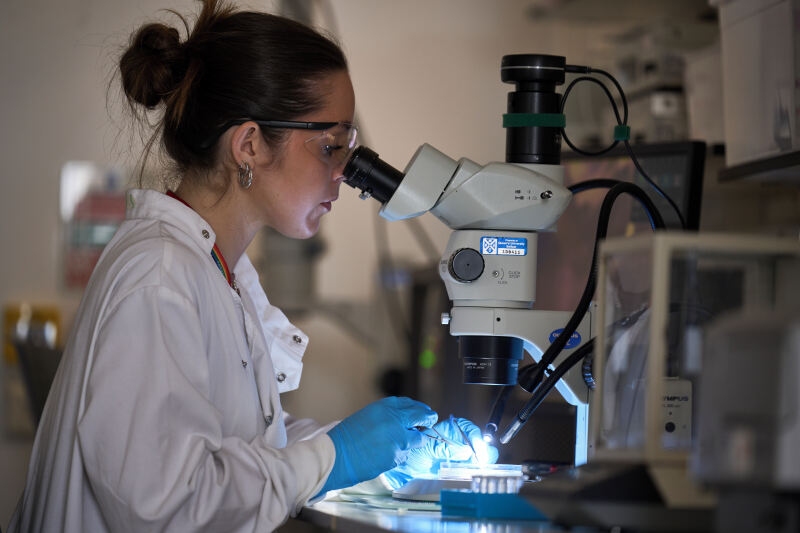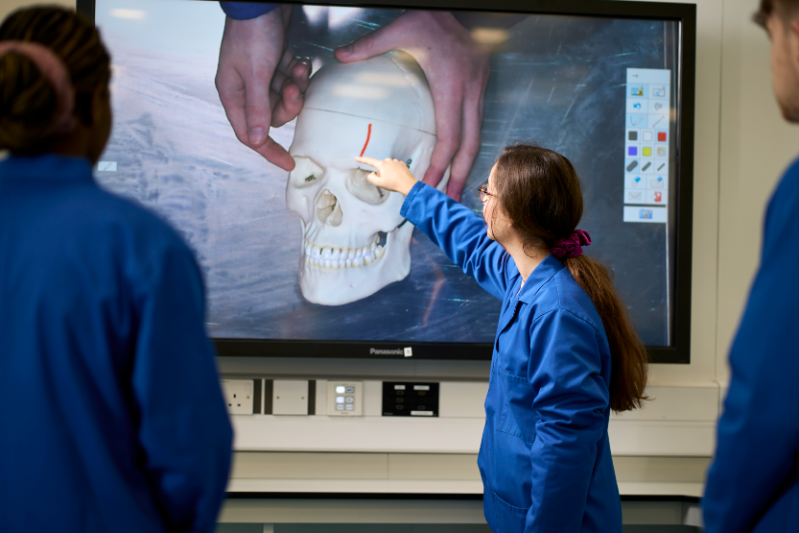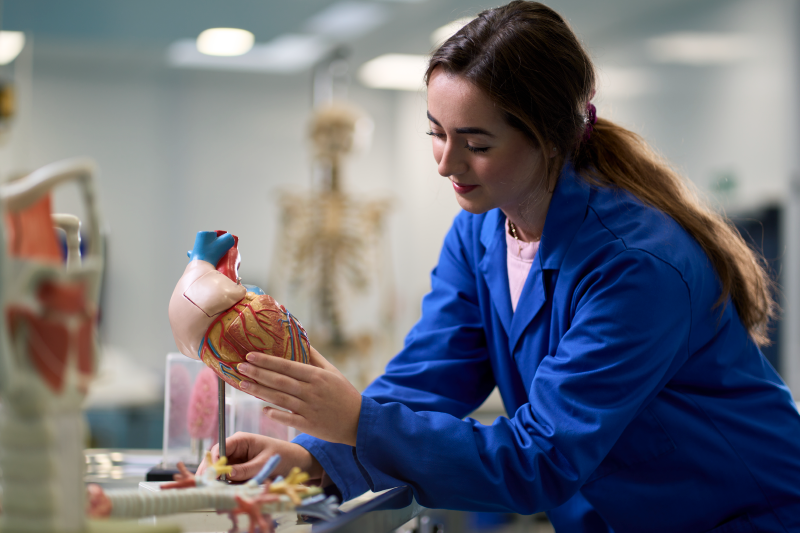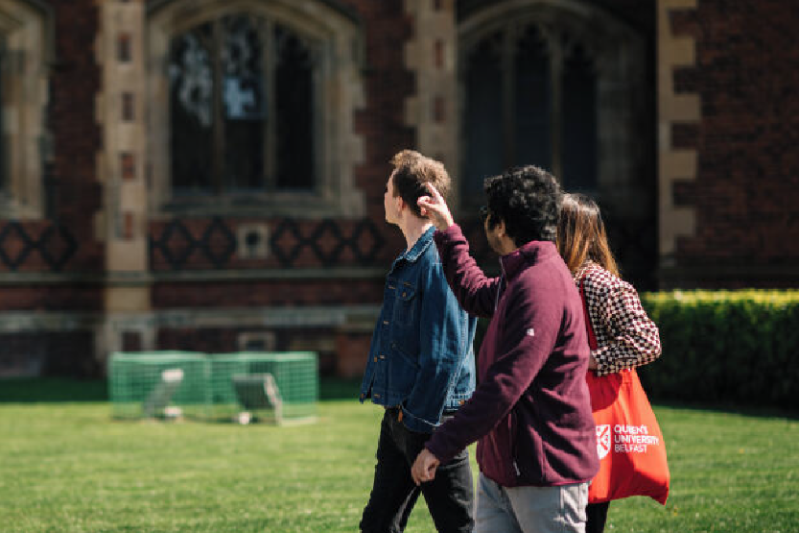Study

Our Biomedical Science degree enables you to explore the sciences related to medicine and in particular, the specialist disciplines of diagnostic Biomedical Science as practised in Health Service Laboratories. Our degree is accredited by the Institute of Biomedical Science and is aimed at students wishing to pursue a career in diagnostic laboratory science as biomedical scientists within the NHS, research or management careers in the pharmaceutical industries or academic research.
Learn More
Human Biology is the integrated study of human anatomy and physiology, including the study of the body in health and disease. It covers a wide range of topics, ranging from genetics, microbiology and immunology to the core disciplines of anatomy, microanatomy and physiology. The degree is designed to allow a greater degree of flexibility in the choice of modules, in comparison to the closely related degree in Biomedical Sciences. Specialist subject areas which can be studied in detail include Pharmacology and Therapeutics, Cardiovascular Pathology and Treatment, Topographical Anatomy, Exercise and Sports Science in Medicine, Embryology and Developmental Biology, Public Health Science and Neuroscience. Within these subject areas we provide a wide and innovative range of learning experiences, such as the use of ultrasound imaging in cardiovascular physiology and exposure to cadaveric prosection.
Learn More
This MSc in Clinical Anatomy aims to provide students with a greater understanding of advanced human anatomy including appropriate radiological anatomy, microscopic anatomy and embryology. The modules presented emphasise clinically and surgically relevant anatomy, although they are not designed exclusively for clinicians.
Learn More
The Intercalated BSc in Medical Sciences is a degree taken between two years of a medical or dental course. The year is equivalent to the final year of a degree in science or biomedical pathways. The degree awarded is a Bachelor of Science (Honours) and depending on performance, this is graded as a 1st Class Honours or Second Class Honours, Upper Division (2.1) or Second Class Honours, Lower Division (2.2) or 3rd Class Honours. Intercalated Medical and Dental Students: Completing an intercalated degree will boost your CV when applying for postgraduate training. Depending on the discipline, selection panels look for completion of an additional degree, or for publications or posters. An intercalated degree gives you the opportunity to improve your chances of future success.
Intercalated Degrees
Accreditation offers students and employers a mark of quality assurance that the Centre meets strict national and international standards. The IBMS has over 21,000 members across 74 countries and is the leading professional body for scientists, support staff and students in the field of biomedical science. Our IBMS accredited BSc in Biomedical Science gives you knowledge and skills in biomedical science to support Health and Care Profession’s (HCPC) registration as a biomedical scientist. This is a requirement for all laboratory roles within the UK and Northern Ireland healthcare system.
